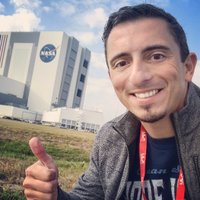
Jason Major
@JPMajor
Space exploration aficionado and NASA image processor
10-01-2010 20:00:07
130,4K Tweets
70,5K Followers
4,9K Following


Jason Major Then rockets will work everywhere. Vacuum continues to be redefined even though it causes static pressure?🤔 Millions of tons of static pressure is a wall to push. You suggest there is no such thing as a vacuum and I tend to agree. Even with others saying the atmosphere ends.


Joycjoint There is no perfect 100% vacuum. At a quantum level particles continue to appear even in the absence of atoms. But with no atmospheric pressure (e.g. >100km) you're effectively in a vacuum environment. And yes rockets work there quite well thanks to Newton's third law of motion.

Jason Major Low density isn't a vacuum. Even if you want people to perceive it as such. NASA has developed an electrostatic engine for travel to Mars but you think a vacuum doesn't exist? I hope you try your own experimentation so that you can find out one day. Thrust requires displacement.


Jason Major You can't have vacuum and a state of balance. There is atmosphere or ionic engines wouldn't work. Electrostatics work differently in that they only use electrons and not actual matter to overcome 'g'. You carry on as though you are a fifth grader. Millions of tons of hydrogen.🤔


Chemicals in the cosmos Jason Major Y'all are making the same globie argument. I thought your types trusted NASA. They are the ones that say there is an atmosphere as far as twice the distance to the moon. Y'all are just trying to convolute the matter. Nice try. A for effort.


Chemicals in the cosmos Jason Major No. You are trying to say that rockets don't press against the atmosphere but fail to show when any rocket has ever been sent into an area not having an atmosphere. 'g' would still be present. Yet y'all say it would have no effect. That is globe logic.🤣
